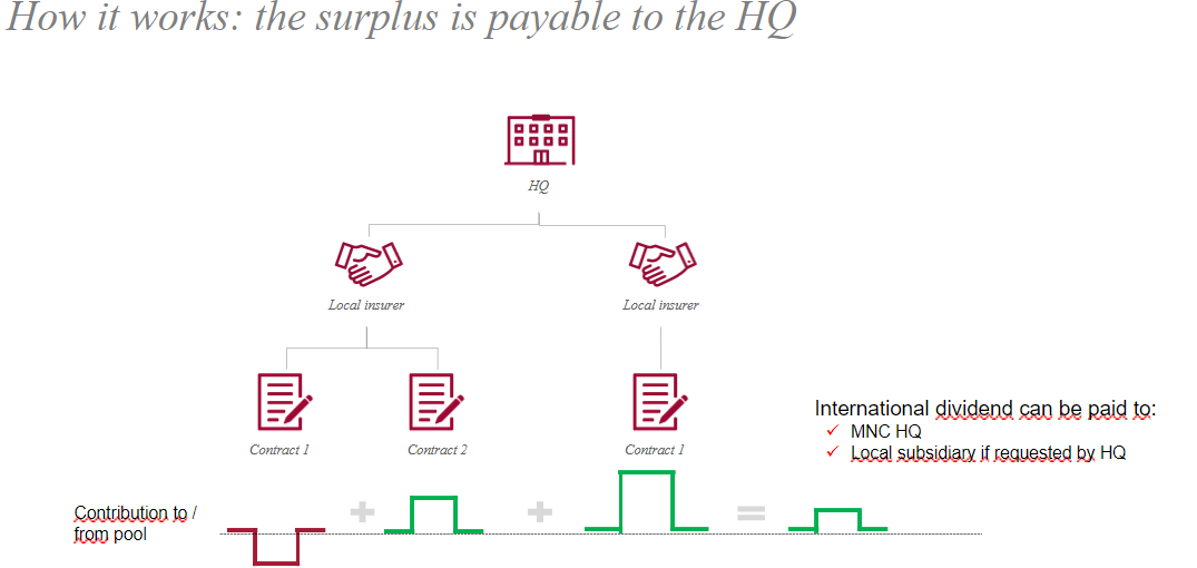By: Berry van Sonsbeek, Product Market Manager Zwitserleven
What is multinational pooling?
A group pension scheme includes risk insurance, for example for occupational disability and a surviving dependant's pension in the event of the participant's passing away. Premiums are paid to cover these risks. If a multinational has group pension schemes in various countries around the world, solutions are available to combine these risks in an insurance pool. Because there is a larger group volume, there are forms of international technical profit-sharing on these risk covers at multinational level. This profit is distributed to the head office of the multinational and can then be redistributed to the local branches of this company.
How does multinational pooling work?
The concept is easily explained with the following diagram.
The subsidiaries A, B and C of the multinational have pension agreements in the countries A, B and C with the pension insurers A, B and C. The risk results realised in these countries contribute to the pool. If the balance of (in this case) the three contracts is positive, it will be paid to the multinational as an international dividend from the pool. At the request of the head office of the multinational, it can then be redistributed among the subsidiaries.

This system is usually in addition to any local benefits (read: discounts or profit sharing). This depends on the insurance network in which multinational pooling is applied. It may rightly be seen as an 'extra' gain.
What other advantages are there to multinational pooling?
Apart from technical profit sharing and information exchange, there are other advantages for multinationals in a multinational pooling agreement. This depends on the capabilities of the international insurance network with which the multinational has entered into a pooling agreement.
In addition to the previously mentioned advantages of:
- International technical profit sharing, and
- Data exchange of employment conditions of the local subsidiaries we often also see the following advantages of joining an international insurance network:
- Expat packages: benefits for expatriate or internationally operating employees
- Benchmark information on individual employee benefits per country.
Conclusion
If there is a multinational client (head office or subsidiary) engaged in a selection process for a pension provider, always investigate the possibility of including the local contract in a multinational pooling agreement. It may well be that a comparison in a tender will turn out in favour of the pension provider affiliated to an international insurance network, purely because of the financial benefits of a pooling arrangement.
This article is published on


